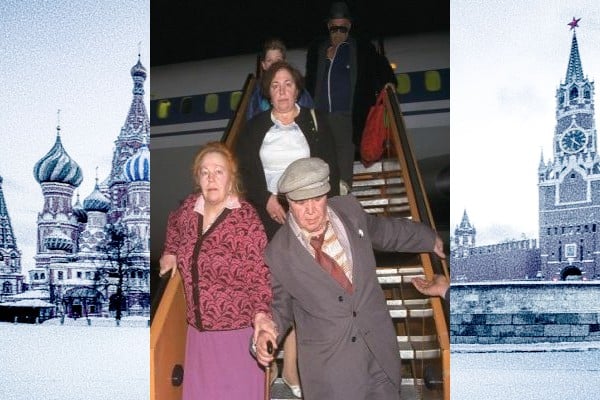Israel must urgently expedite aliyah for Russian Jews before Moscow slams the gates shut, activist warns.
By Pesach Benson, United with Israel
Kremlin pressure on the Jewish Agency may lead to an end of Russian Jewish aliyah, activists told Ynet on Monday.
Reports conflict on exactly what Russia has said and not said to the Jewish Agency, a quasi-governmental organization best known for facilitating Jewish immigration to Israel.
Yigal Palmor, head of the Jewish Agency’s international relations unit, told the Times of Israel the organization is reviewing Russian demands conveyed in a recent letter. Palmor did not specify what the nature of the Russian demands, only saying the agency is studying the letter and planning it response.
For time being, “all Jewish Agency programs and activities will continue as planned,” a Jewish Agency official told the Times.
But that has not quieted Israeli concerns.
Alex Rif, a long-time Israeli social activist and Ukrainian native warned that the Jewish Agency urgently needs to expedite Russian aliyah before the Kremlin inevitably bars Jews from leaving.
“I am very concerned because senior Russian officials have not denied the content of the letter,” she told Ynet. “How long can the Jewish Agency operate like that?” she asked.
“The Immigration processes must be digitized. It currently take months and involves a great deal of bureaucracy. Should Russia decide to stop Jewish immigration, leaving Jews stuck in Russia, It will be on our conscience,” Rif stressed.
Roughly 15,000 Jews have immigrated from Russia since February 24, when Russia invaded Ukraine. Most, if not all of those immigrants began the aliyah process well before the war.
However, Rif told Ynet that another 30,000 Russian Jews have already opened immigration files. They are the people whose immigration needs to be urgently expedited, she said.
“Israel must prepare for a wave of immigrants,” she warned.
An estimated 180,000 Jews live in Russia.
The reasons for Russia’s crackdown on the Jewish Agency and the timing behind it aren’t clear.
Israel has been generally supportive of Ukraine, though its aid to Kyiv has been limited to humanitarian aid. Moscow recently lashed out at Israel over air strikes on Iranian targets in Syria. In June, Russian officials criticized an Israeli High Court ruling which validated Ateret Cohanim’s purchase of a hotel in Jerusalem’s Old City from the Greek Orthodox Church, ending a lengthy legal battle.
Russian President Vladimir Putin has also demanded that Israel follow through on a commitment to transfer ownership of the Old City’s Alexander Courtyard to Russia. In 2020, then-Prime Minister Benjamin Netanyahu promised to transfer the church and courtyard to Russia as a gesture of appreciation for releasing Naama Issachar, an Israeli-American citizen detained in Russia for 10 months when 10 grams of marijuana were found in her luggage while she was waiting for a layover flight.
However, transferring the property to Moscow amidst its invasion of Ukraine would possibly run afoul of international sanctions against Russia.
Russia has restricted or banned the activities of numerous “undesirable” foreign non-governmental organizations over the years, including Freedom House and the National Endowment for Democracy.
The Kremlin has used restrictions on foreign NGOs to crackdown on domestic dissent too. Under heavy pressure, the Russian-based Committee for the Prevention of Torture disbanded in June after authorities claimed it was a front for “foreign agents.”
Send Passover Packages to Needy Israeli Soldiers - Bring Them Joy!
We are honored to thank the young men and women of the IDF who risk their lives every day to protect the citizens of Israel. Since October 7th, soldiers have been on the battlefield for months - many are hoping to come home for Passover.
Join us in sending Passover food packages (and personal notes) to Israeli soldiers and their families.
Many soldiers spend the Passover holiday with needy families back home. The soldiers greatly appreciate your love and concern. Bring them Passover joy!
CLICK HERE TO SEND YOUR PACKAGE AND NOTE TO ISRAELI SOLDIERS!




